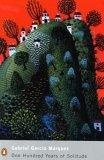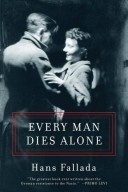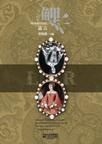Wednesday, October 28, 2009
Friday, October 9, 2009
Global Classic Challenge!
Name: Global Classic Challenge
Theme: Reading 6 classic books from different countries, with each book representing one country
Requirement: Read and review all listed books before June 30, 2010
Book List:






Every Man Dies Alone by Hans Fallada [Germany]
To participate in the challenge, please leave a comment to this post indicating your interest. You can submit your each review by posting a link to your post in which you write your review to my most recent blog entry. If you do not have a blog and wish to participate, you can simply e-mail your review to me and I will post your review on my blog for you.
Honestly I think this is one of easiest challenges out there. You basically have more than enough time to read all of these worldly famous books. What are you waiting for? And don't forget the giveaway at the end! :)
Tuesday, October 6, 2009
The Descent
Title: The Descent
Author: Jeff Long
Publisher: Jove
Pages: 572
Reading Period: September 11 - 29, 2009
Opening:
It is easy to go down into Hell...; but to climb back again, to retrace one's steps to the upper air - there's the rub... --- Virgil, Aeneid
The beginning of The Descent seemed promising enough. A trekker guide named Ike got lost during a trekking journey and led his group of travelers into a cave in the Himalayas where they discovered a self-mutilated corpse named Isaac...or at least they thought it was a corpse. Someone got lost in the cave during the night. The team was separated into two groups to search the missing person. Soon, screaming was heard; blood was smeared across the walls; and then, Ike came upon a pile of terribly wounded bodies of his fellow travelers who were obviously tortured to death. There was an evil force at work down in the cave. And Ike was in for a big surprise.
Essentially the story is about the discovery of a species of alien creatures who populated the underworld. Some scientists were led to believe that our very own Satan actually lived among these creatures. The mega corporation Helios gathered an expedition team that consisted of famous scientists from various fields to embark upon an underworld journey 35,827 feet deep into earth - the deepest known point on earth - to search for the origin of these creatures that we called hadals and possibly, Satan. Unfortunately, only two people came out alive at the end of the expedition - Ali the nun who wanted to re-construct the dying language of hadals, and Ike who was once captivated by hadals - The rest of the team have either been killed by hadals or died from fighting among each other.
I had high hope that Jeff Long would fill the void left by Michael Crichton who had been my favorite thriller novel writer for years. Therefore, my opinions may come off as somewhat biased and more critical as I write this review. The story itself is quite enticing and thrilling. Jeff Long's depiction of the hadals actually gave me nightmares (I'm not kidding!). I have to admit that Jeff Long has acquired abundant knowledge and done enough research for this book. However, in terms of writing style, he does have a tendency to conclude a highly suspenseful chapter with a climaxing note without further developing the storyline, which oftentimes left me feeling very unsatisfied. This kind of writing tactic can work for some readers, but personally it's not my cup of tea.
In the end, they find Satan and what do we know, he is not who we expected at all! But I wasn't surprised because the answer became obvious way earlier in the book. I expect others who read the book weren't surprised either because it was really quite obvious. I have to say Jeff Long did not twist it up well enough for the readers to go, omygod, I can not believe it!
Jeff Long is no Crichton but there is no doubt that he does have the talent at constructing a lengthy thriller story. I am not opposed to reading another book of his.
Have you ever read a Jeff Long's book? What do you think of his book?
Saturday, September 12, 2009
A Tale of Two Cities
 Author: Charles Dickens
Author: Charles Dickens It is not easy to review a classic, let alone a classic with great historical implications such as Dickens' A Tale of Two Cities. However, as a devout Dickens reader, I feel obliged to review his book.
Like many great literature in history, A Tale clothes itself in multiple layers of meanings and the story can be enjoyed on various level depending on the age of the reader. On the most superficial level, it is an intimate story of kinship and love with the tumultuous backdrop of French Revolution. Lucie reunites with her long-lost father (Doctor Manette) who has suffered years of political imprisonment in the Bastille. With Lucie's loving care, Doctor Manette struggles to maintain his sanity which is otherwise reflected by his obsessive shoe-making activities. During this time, Lucie is met and pursued by two suitors - Charles Darnay who is an exiled French aristocrat, and Sydney Carton who is a disreputable but brilliant English lawyer. As the story progresses, Lucie marries Darnay and war breaks out in France. Darnay is arrested for his acrostic association. Doctor Manette learns to let go of his fear and irrational rage towards his prosecutors through helping Darnay. But it is Sydney Carton who makes the ultimate sacrifice in the name of justice and his undying love for Lucie.
Of course, Dickens' stories are never to be taken lightly at its face value. There are always deep and even deeper implications, which makes his books so much more intriguing. The most important implication of this book is the French Revolution. Unlike other books from the genre of historical fiction, Dickens used only a handful of characters and successfully delivered the epic movement of history and portrayed the clash of classes by microscopically examining the relations between Manette, Darnay and the Defarges. There is strong conflict between the lowly working-class such as the Defarges and Darnay who is crowned as an aristocrat only by birth but would rather earns an honest and modest life by laboring for it. Then, there is Manette. Caught between two clashing forces, his unforgettable past gives him the urge to hate Darnay and the likes of him, yet Darnay's marriage with his daughter represses him from exposing his inner feeling. Manette's internal struggle and fragility is seen everywhere in the book and his dependence on his daughter Lucie is somewhat disturbing to me.
Regardless if you are a Dickens' fan or not, I suggest you pick up and read one of his books, if not this one, any other one will be just as good. To me, Dickens' books are timeless and I like how most of his characters have a sense of purity and goodness in them than are hard to find in most books.
Monday, August 10, 2009
Odd Hours

Dean Koontz created Odd Thomas on a whim - a young man haunted by lingering spirits who can also foresee potential disasters - Dean Koontz then went on and wrote four books about this young man and his thrilling adventures. Odd Hours is the fourth installment of these adventures, and possibly the last, as Dean Koontz gravely put it - "I saw the end of his journey".
Odd Thomas arrives at Magic Beach without much of a purpose. The only thing that leads him here is a dream of an blazing red ocean and the face of a woman. On a chilly afternoon, Odd goes out for a walk on the boardwalk of Magic Beach, and there he meets the mysterious lady in his dream. Her name is Annamaria. It is also on that gloomy afternoon when they run into three comic looking villains of the story - a blond gorilla and two skinny redheads - who are determined to chase down Odd and finish him off. After vowing to Annamaria that he will die for her, Odd immediately understands that the mission he is about to embark upon is not like any other he's experienced before. A greater power is at work and it could lead to mass destruction. Odd has arrived at the of his journey, the end of his destiny... (I rather not spoil it for you)
This is my first time reading Odd Thomas, as well as my first time reading Dean Koontz. I humbly admit that as an inexperienced Dean Koontz reader, my opinions could be biased, but I still like to put forth my two cents.
I find it very hard not to like Odd Thomas. He is an absolutely down-to-earth guy who is wise and mature beyond his years, not to mention he possesses the psychic power that allows him befriend the likes of Elvis and Frank Sinatra! Dean Koontz.also injected him with a great sense of humor that is undying even when facing the greatest peril. Annamaria, I don't know what to say about this character. She is a mystery at the opening of the story and remains so throughout the book. Odd meets her the same time he runs into the villains. But is Annamaria the link between Odd and the 'bad guys'? Did she exercise some kind of power to draw them together? There is no clear indication in the book. As Odd drives off with her at the end of the book, I can only imagine the meaning of this woman's existence in Odd's life. It is almost as if Odd could have accomplished everything without her. Was she in the story purely out of the need a female character in the story? One has to wonder...
This book is mostly entertaining and even philosophical at times. There are quite a few passages that discuss the Odd Thomas' Morales and motives for partaking dangerous missions. It adds more definition to the character and shows readers that Odd Thomas, as odd as he appears to be with his premonition power, is in fact a human being just like the rest of us. He has fears and doubts. He questions his purpose of existence. He wonders if he is able to make it... (Well, don't we all?)
When it comes to style of writing itself, I have to admit Dean Koontz lost me. I can't comprehend the reason behind some of the lengthy scenes such as the escape at the pier, the coyotes, and finding the bodies at Sam Whittle's house. There are times when I really wanted to give up on this book because I simply couldn't bear with the directionless plot. And speaking of which, the plot is neither very complicated nor full of suspense. If there is any mystery in the story, it has to be the question of what kind of danger is awaiting Odd? And to be honest, it didn't take me very long to figure it out.I am not very keen on reading the previous books from Odd Thomas series, but I would definitely love to pick up one of Dean Koontz's older books from the 90's or even 80's as I heard that his writing has been changing profoundly over the years.
Do you have any Dean Koontz's books that you would like to recommend?
Hope you find this review useful. Let me leave you with one of my favorite quotes from the book.Don't get me wrong. I do not seek death. I love life, and I love the world as its exquisite design is revealed in each small portion of the whole.
No one can genuinely love the world, which is too large to love entire. To love all the world at once is pretense or dangerous self-delusion. Loving the world is like loving the idea of love, which is perilous because, feeling virtuous about this grand affection, you are freed from the struggles and the duties that come with loving people as individuals, with loving one place -- home -- above all others.
I embrace the world on a scale that allows genuine love -- the small places like a town, a neighborhood, a street -- and I love life, because of what the beauty of this world and of this life portend. I don't love them to excess, and I stand in awe of them only to the extent that an architect might stand in the receiving room of a magnificent palace, amazed and thrilled by what he sees, while knowing that all this is as nothing compared to the wondrous sights that lie beyond the next threshold.
Until next book...

